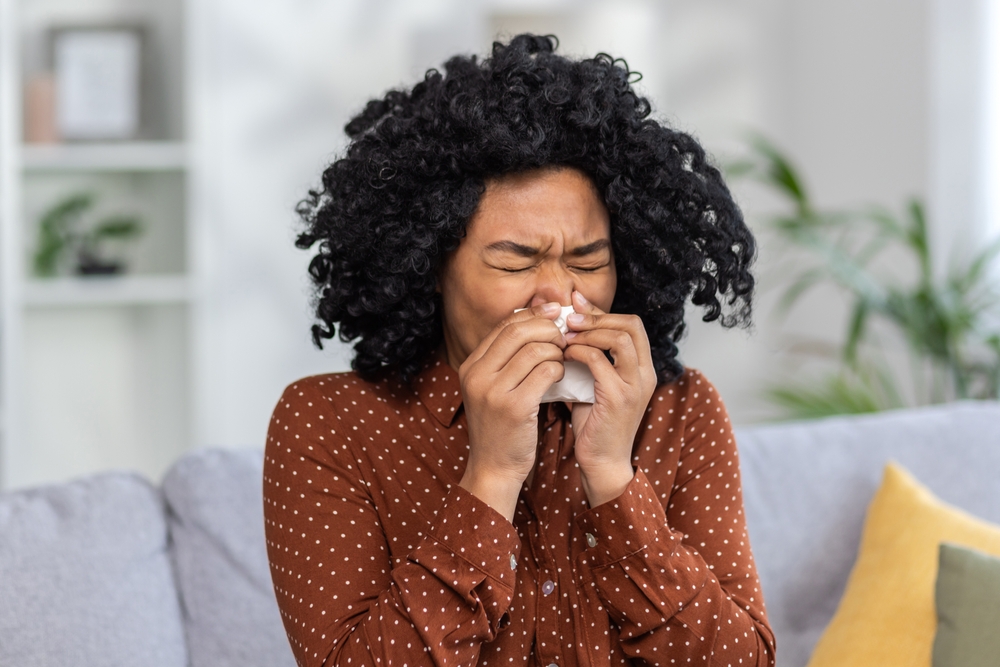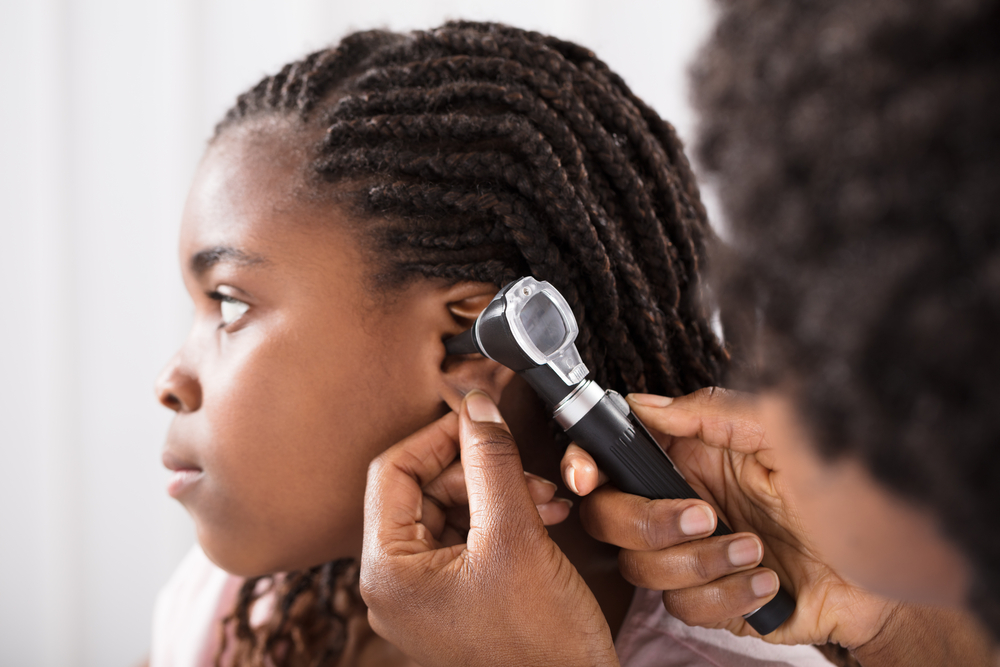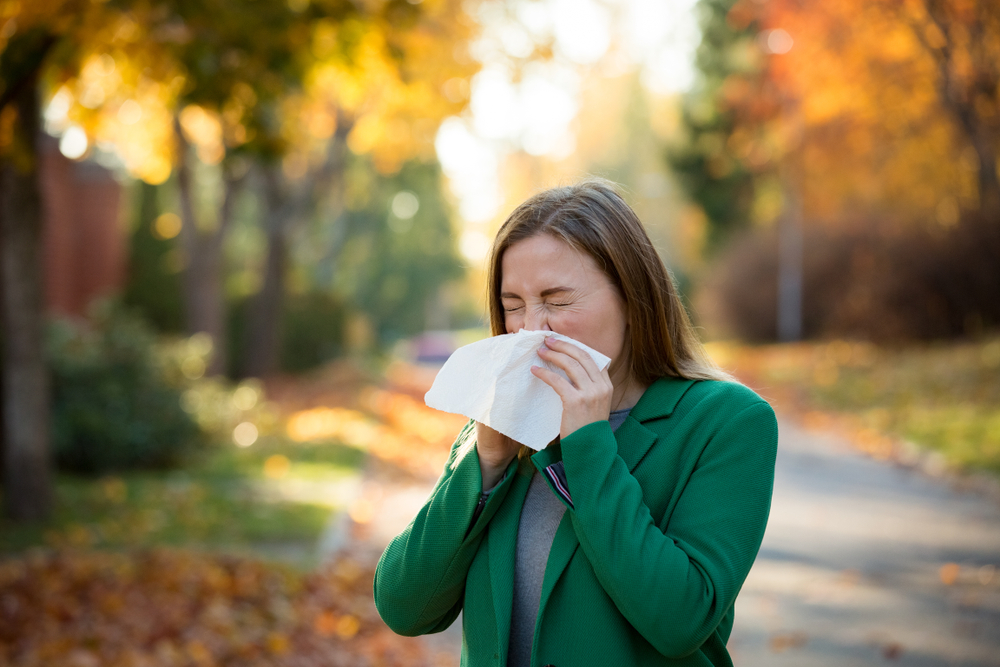Are you struggling with a persistent nasal congestion and frequent sneezing that doesn’t seem to go away? You may be wondering whether these symptoms are due to allergies or a sinus infection. Although both conditions can produce similar symptoms, recognizing the differences between them is crucial for effective treatment.
What is a sinus infection?
A sinus infection, or sinusitis, typically arises when the sinuses become inflamed due to a viral infection, like a cold. This inflammation obstructs the normal flow of mucus, leading to a buildup that can become infected. Unlike a cold, which usually resolves on its own, a sinus infection can linger, causing prolonged discomfort.
Symptoms of sinus infections
Sinus infections can manifest with a variety of symptoms, including:
- Nasal Congestion: Persistent stuffiness or a runny nose.
- Sneezing: Frequent and often forceful.
- Headaches: Pressure headaches caused by inflamed sinuses.
- Fatigue: Persistent tiredness or lack of energy.
- Mucus Color: Thick, discolored mucus, often yellow or green.
- Facial Pain: Pain and pressure around the face, ears, or mouth.
- Post-Nasal Drip: Mucus dripping down the back of the throat.
- Fever: Elevated body temperature.
- Bad Breath: An unpleasant smell from the mouth.
What are allergies?
Allergies occur when your immune system overreacts to substances known as allergens, such as pollen, dust, or pet dander.
When exposed to these triggers, your body mistakenly identifies them as harmful and responds by releasing histamines, leading to allergic symptoms.
Symptoms of allergies
Common symptoms of allergies include:
- Nasal Congestion: A runny or stuffy nose similar to sinus infections.
- Sneezing: Often triggered by allergens.
- Headaches: Typically less severe than those caused by sinus infections.
- Fatigue: A general feeling of tiredness.
- Itchy Eyes: Eyes that feel itchy or irritated.
- Red Eyes: Eyes that appear inflamed.
- Wheezing: A high-pitched whistling sound when breathing, particularly if you have asthma.
Distinguishing between allergies and sinus infections
Differentiating between allergies and sinus infections involves noting the pattern and timing of your symptoms. Sinus infections tend to develop gradually and can worsen over time, whereas allergy symptoms often fluctuate based on exposure to specific allergens.
For instance, if your symptoms intensify during certain activities (like gardening or cleaning) or at specific times of the year, allergies might be the cause. Seasonal patterns, such as getting congested around the same time each year, also suggest allergies.
However, allergies can sometimes lead to sinus infections, so it’s essential to monitor if your symptoms persist or worsen.
What are treatment options for allergies and sinus infections?
Understanding the cause of your symptoms is vital as treatments for allergies and sinus infections differ significantly:
Sinus infection treatments
These may include antibiotics to combat bacterial infections or corticosteroids to reduce inflammation.
In cases of chronic sinusitis, surgical intervention might be necessary to address structural issues, like a deviated septum.
Allergy treatments
Treatment often involves over-the-counter antihistamines or nasal sprays to manage symptoms.
For long-term relief, allergy shots (immunotherapy) can help build tolerance to allergens by gradually exposing your immune system to increasing amounts of allergens.
When to consult a medical professional
Self-diagnosis can be challenging and inaccurate. If your symptoms persist beyond the typical duration of a cold (usually more than a week or a week and a half), it’s essential to consult a healthcare provider. A physician can accurately diagnose your condition and recommend appropriate treatments.
For persistent or severe symptoms, seeking the expertise of an ENT specialist can provide targeted relief and a tailored treatment plan. If you’re struggling to manage your symptoms, don’t hesitate to find an ENT specialist near you to get the help you need.



